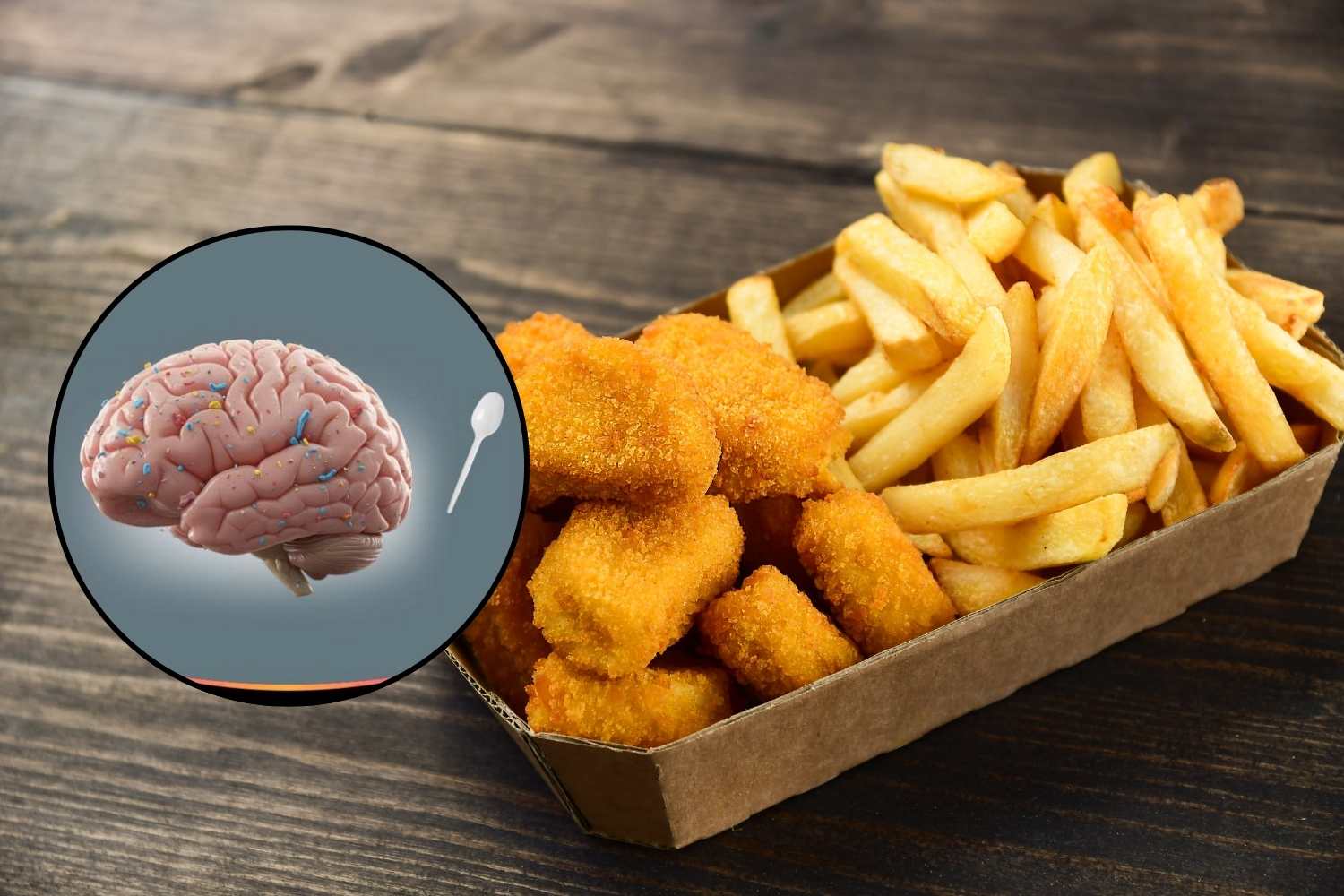A new study shows that ultra-processed foods, already known for their negative health effects, contain worrying amounts of microplastics that could reach the brain and damage mental health

Table of contents
Ultra-processed foods (UPFs) have become a staple of modern diets, found on supermarket shelves, in lunch boxes, and on dinner tables. But a growing body of research is making one thing clear: they may pose serious risks not just to physical health—but to mental health, too.
A series of four studies published in the journal Brain Medicine suggests a troubling link between UPFs, microplastics, and rising rates of depression, anxiety, and insomnia.
The international team of researchers—from the University of Ottawa and University of Toronto in Canada, Loma Linda University in the U.S., and the Food & Mood Centre at Deakin University in Australia—highlight how microplastics can enter the human body, accumulate in vital organs, and potentially contribute to psychological distress.
What are UPFs and why are they a problem?
Ultra-processed foods include a wide range of industrial products, such as:
-
chicken nuggets and patties
-
bagged potato chips
-
packaged snacks (crackers, bars, cookies)
-
processed meats (hot dogs, packaged cold cuts)
-
boxed breakfast cereals
-
mass-produced ice cream
-
sugary and carbonated drinks
These foods are often high in added sugars, saturated fats, sodium, artificial additives, and—as this new research underlines—microplastics.
What the studies uncovered
The researchers compared various foods, analyzing microplastic content in ultra-processed products versus fresh, minimally processed items.
One striking example: factory-made chicken nuggets were found to contain up to 30 times more microplastics per gram than fresh chicken breast.
These microscopic particles can cross the blood-brain barrier and accumulate in brain tissue. According to the researchers, it’s theoretically possible for a person to carry the equivalent of a full teaspoon of microplastics in their brain.
The team also referenced compelling data linking UPF consumption to mental health issues. A recent umbrella review in The BMJ found that people with high UPF consumption had:
-
22% higher risk of depression
-
48% higher risk of anxiety
-
41% higher risk of sleep disorders
“We are seeing converging evidence that should concern us all,” said Dr. Nicholas Fabiano, a psychiatry resident at the University of Ottawa.
Fabiano explains that microplastics seem to impact the brain via the same biological pathways observed in UPF consumption: chronic inflammation, oxidative stress, mitochondrial dysfunction, and neurotransmitter disruption.
“These overlapping mechanisms make the link between microplastics and mental health particularly plausible,” added Dr. Wolfgang Marx, a senior researcher in Australia.
What can we do to protect ourselves?
While more studies are needed to confirm a direct cause-effect relationship between microplastics and mental health, current evidence already points to practical steps we can take:
-
Avoid cooking food in plastic containers, especially in the microwave
-
Use glass or stainless steel for food storage and preparation
-
Reduce intake of ultra-processed foods, favoring fresh, whole foods
-
Filter your tap water to reduce microplastic ingestion
With UPFs making up over 50% of daily caloric intake in the U.S. (and rising across Europe), it’s time to consider not only the physical, but also the mental cost of what we eat.
“After all, we are what we eat. And if our food contains plastic, maybe we should really start worrying,” Fabiano concludes.
